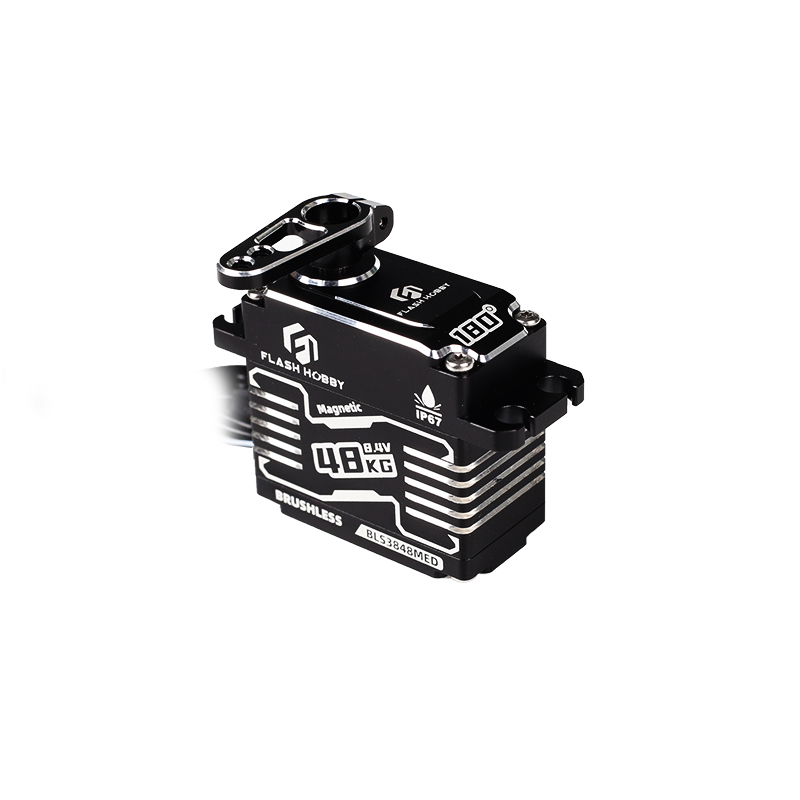Unleashing Precision: Exploring the Primary Applications of Servo Motors
2024-05-09
Servo motors are hailed as the workhorses of precision motion control, powering a diverse array of applications across industries. Their ability to deliver precise positioning, velocity, and acceleration control makes them indispensable in environments where accuracy and reliability are paramount. Let's delve into some of the primary applications where servo motors shine, driving innovation and efficiency across various domains.
Industrial Automation:
In the realm of industrial automation, servo motors play a pivotal role in powering robotic arms, conveyor systems, pick-and-place machines, and other automated equipment. Their precise motion control capabilities enable seamless integration into complex manufacturing processes, enhancing productivity, throughput, and quality control. Whether it's assembling electronic components, packaging goods, or machining parts, servo motors provide the agility and accuracy needed to meet the demands of modern production environments.
CNC Machining and Milling:
CNC (Computer Numerical Control) machines rely on servo motors to drive the axes of motion, translating digital designs into precise physical movements. Servo motors power the spindle, X, Y, and Z axes, allowing for high-speed machining operations with exceptional accuracy and surface finish. From milling and turning to routing and grinding, servo motors enable CNC machines to produce intricate parts and components for industries such as aerospace, automotive, and medical devices.
Robotics and Automation:
Servo motors are the backbone of robotic systems, providing the dexterity and precision needed for tasks ranging from simple pick-and-place operations to complex manipulation and assembly tasks. In industrial settings, robots equipped with servo motors perform tasks such as welding, painting, palletizing, and material handling with unparalleled speed and accuracy. In addition to industrial robots, servo motors are also used in collaborative robots (cobots) and service robots for applications such as logistics, healthcare, and agriculture.
Packaging and Labeling:
The packaging industry relies heavily on servo motors to drive the motion of packaging machinery, including form-fill-seal machines, cartoners, labelers, and pouching equipment. Servo motors enable precise control over filling, sealing, labeling, and wrapping processes, ensuring consistency and accuracy in packaging operations. Their ability to synchronize multiple axes of motion allows for efficient packaging of a wide range of products, from food and beverages to pharmaceuticals and consumer goods.
Printing and Labeling:
In the printing and labeling industry, servo motors power the rollers, feeders, print heads, and cutting mechanisms of various printing and labeling machines. Whether it's flexographic printing, digital printing, or label application, servo motors deliver the precise motion control needed to achieve high-resolution prints, accurate registration, and consistent product quality. Servo-driven printing presses and label applicators are widely used in packaging, publishing, textiles, and specialty printing applications.
Medical Devices and Instruments:
Servo motors play a vital role in medical devices and instruments that require precise motion control and positioning, such as surgical robots, imaging equipment, diagnostic instruments, and laboratory automation systems. In surgical robotics, servo motors enable surgeons to perform minimally invasive procedures with enhanced dexterity and precision, improving patient outcomes and recovery times. In medical imaging, servo-driven gantries and tables ensure accurate positioning of patients for diagnostic procedures such as CT scans, MRIs, and X-rays.
Conclusion:
In conclusion, servo motors are versatile and indispensable components in a wide range of applications, from industrial automation and robotics to packaging, printing, medical devices, and beyond. Their ability to deliver precise motion control, high-speed operation, and exceptional reliability makes them the preferred choice for applications that demand accuracy, efficiency, and flexibility. As technology continues to advance, servo motors will continue to drive innovation and efficiency across diverse industries, shaping the future of automation and precision engineering.



